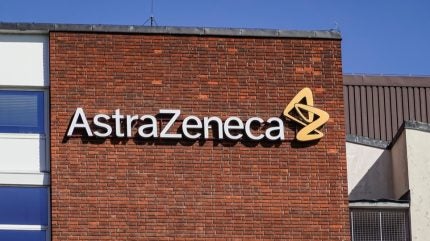
AstraZeneca’s Fasenra (bevacizumab) is set to challenge GSK’s Nucala (mepolizumab) in eosinophilic granulomatosis with polyangiitis (EGPA) as the US Food and Drug Administration (FDA) approved the former.
The approval was based on a non-inferiority Phase III MANDARA trial (NCT04157348) comparing Fasenra to Nucala in patients with EGPA. GSK’s Nucala was first approved by the FDA in 2015, and it has since been the only FDA-approved biologic therapy, along with corticosteroids, for EGPA.

Discover B2B Marketing That Performs
Combine business intelligence and editorial excellence to reach engaged professionals across 36 leading media platforms.
Fasenra is a monoclonal antibody that inhibits IL-5 alpha on eosinophils, a type of white blood cell, to induce cell death. The drug was first developed by Japanese company BioWa and has since been licensed to AstraZeneca.
This is the third indication the FDA has approved for Fasenra. The therapy is approved as an add-on maintenance therapy for patients with severe asthma and uncontrolled severe eosinophilic asthma. Nucala is approved by the FDA for five indications – severe asthma, EGPA, severe eosinophilic asthma, hypereosinophilic syndrome, and chronic rhinosinusitis with nasal polyps.
The two had comparable sales last year, with Nucala pulling in slightly higher sales of £1.6bn ($2.19bn), compared to $1.55bn in sales for Fasenra, according to respective companies’ financials. GlobalData expects Fasenra and Nucala to have comparable sales by 2029, generating $2.3bn and $2.1bn, respectively.
GlobalData is the parent company of Pharmaceutical Technology.

US Tariffs are shifting - will you react or anticipate?
Don’t let policy changes catch you off guard. Stay proactive with real-time data and expert analysis.
By GlobalDataThe Phase III MANDARA trial enrolled 140 patients with EGPA. The study met its primary endpoint with 59% of participants in the Fasenra arm achieving remission at weeks 36 and 48, compared with 56% for Nucala. Furthermore, 41% of the patients in the Fasenra group were able to eliminate corticosteroids from their treatment plan, compared to 26% in the Nucala group.
AstraZeneca is also investigating Fasenra in additional autoimmune conditions, including chronic obstructive pulmonary disease (COPD). However, the therapy failed to meet primary endpoints in Phase II and Phase III trials for various dermatological indications such as atopic dermatitis, bullous pemphigoid, chronic spontaneous urticaria, and eosinophilic esophagitis.
Earlier this month, GSK announced that the Phase III MATINEE trial (NCT04133909) evaluating Nucala in COPD met its primary endpoint. While the company did not disclose data from the study, it noted that there was a “statistically significant and clinically meaningful reduction” between the two treatment groups of up to two years.




